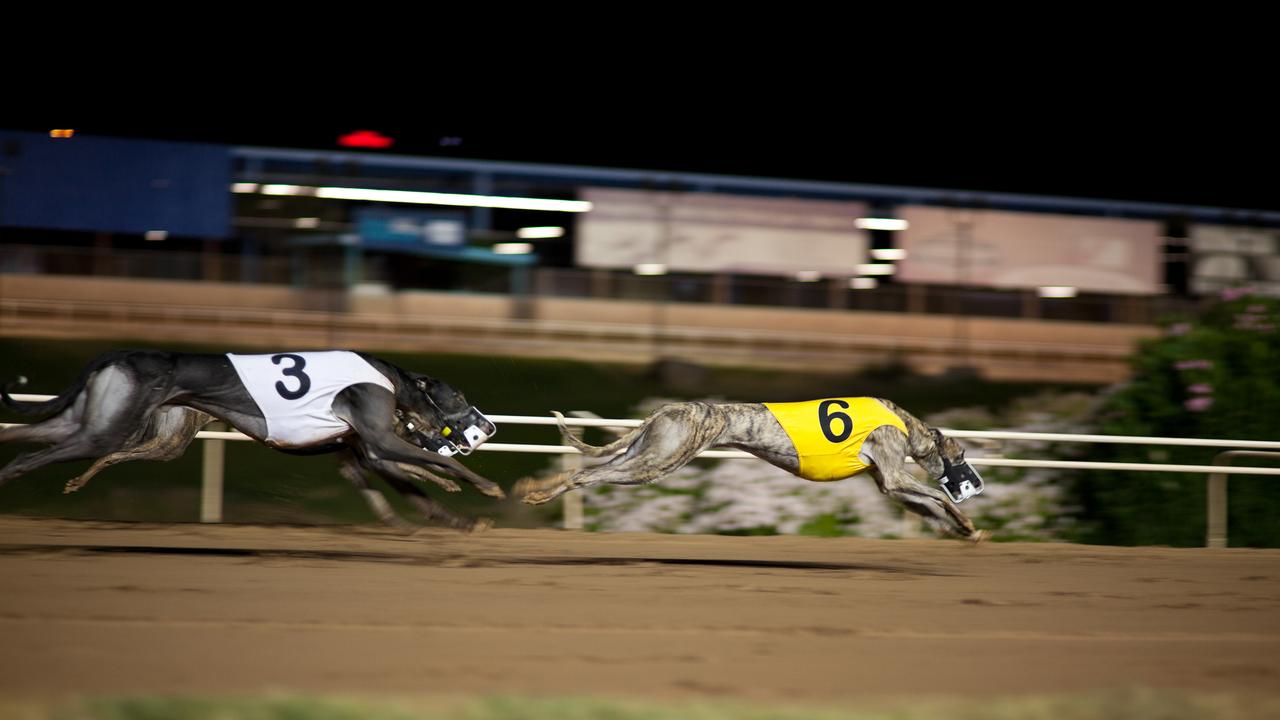Food blamed for greyhound test failure at Queensland track
A veteran greyhound trainer had two dogs test positive for elevated levels of a prohibited substance. But he believes something approved by the racing watchdog was responsible.

Police & Courts
Don't miss out on the headlines from Police & Courts. Followed categories will be added to My News.
A veteran greyhound trainer who had two dogs test positive for elevated levels of a prohibited substance believes food approved by the racing watchdog was responsible for the problem.
Trainer Andrew George Suli came under scrutiny in October 2021 after urine samples taken from two of his dogs competing in races at the Rockhampton Greyhound Racing Club were found to contain Cobalt in excess of the allowed limit of 100 nanograms per millilitre.
He was found guilty of two counts of breaching Greyhounds Australasia Rules and given concurrent 12-month licence suspensions with six months wholly suspended for a year.
Mr Suli sought an internal review which reached the same conclusion before launching an application for review of the penalty by the Queensland Civil and Administrative Tribunal in May 2022.
But after a hearing in December last year, the tribunal on Friday published its decision to uphold the penalty, finding it was not unreasonable and that anything less would have been manifestly inadequate.
According to the judgment, Mr Suli said at the time of the failed tests, he had been feeding his 22 racing dogs the Winning Edge Platinum brand of kibble which was on the Greyhound Racing Authority’s list of approved foods.
He submitted to QCAT that in the absence of a warning from the racing watchdog about the risks of kibble containing cobalt, he believed the food was safe to use.
“He submitted it was impractical to have each and every bag of kibble purchased by him scientifically tested,” the tribunal wrote.
“He stated that it is difficult to understand what more he could have done.
“He also questioned why he would have gone to the trouble and expense of further investigation of cobalt levels in dog food if there was nothing to indicate to him that there might be risks associated with feeding the product to his greyhounds.”
But QCAT found in favour of the Queensland Racing Integrity Commission, finding Mr Suli looking at the kibble’s ingredients list and surmising it did not contain cobalt “was insufficient to discharge his responsibilities as a licensee”.
“He took no active responsibility for the feeding regime of his dogs and as such he must accept the culpability which comes with his failure to take his responsibility as seriously as it needed to be taken,” the tribunal wrote.
“I find that the central issue is the maintenance of the public’s confidence in racing, in this case, greyhound racing.
“I also must consider that the public bets money on the outcome of these races and if these races were not to be run with integrity and without the use of prohibited substances in animals, the public would very quickly lose confidence in the industry.”



